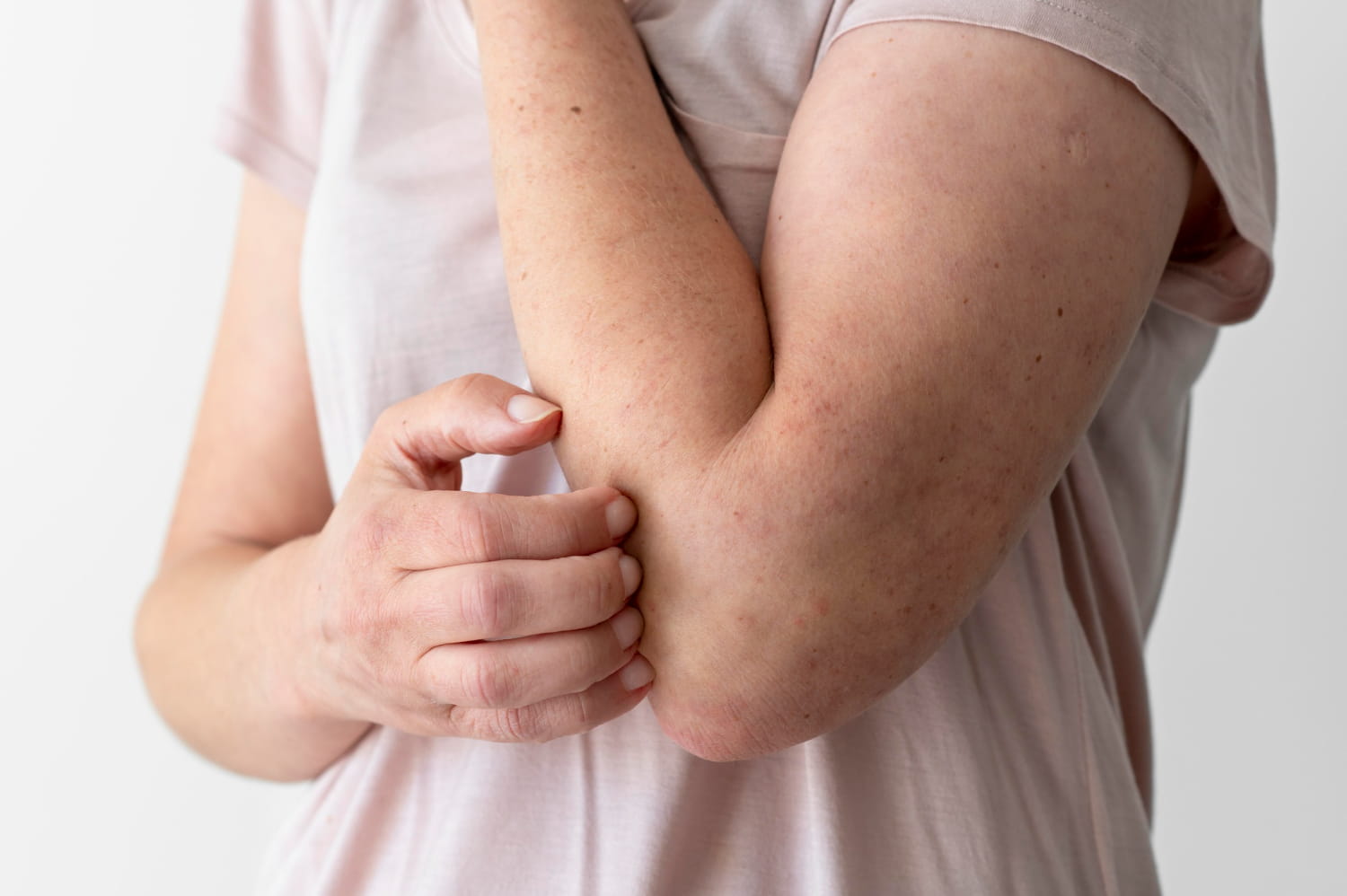Experts’ Opinions on Stress and Rash
Admin
- 0

In recent times, there has been a significant increase in the number of young people seeking medical help to address stress-related skin problems. Dr. Shasa Hu, associate professor in the Department of Dermatology and Cutaneous Surgery at the University of Miami Miller School of Medicine, reports that more young patients are experiencing stress rashes, a physical consequence of the increasing level of stress in the body. actual society.
According to experts, stress can trigger a variety of skin conditions, from hives to rosacea, psoriasis and eczema. Dr. Hu explains that the link between stress and skin is found in the hypothalamic-pituitary-adrenal axis in the brain, which regulates the body’s response to stress. The release of cortisol, known as the “stress hormone,” interacts with the immune system, increasing the skin’s susceptibility to developing rashes and aggravating various skin conditions.
Contents
ToggleAlso Read: Blood tests could help diagnose Parkinson’s
Dr. Evan Rieder, a board-certified dermatologist and psychiatrist in New York City, adds that during times of stress, several factors, such as lack of sleep, dietary changes, and other challenges, can combine to negatively affect the skin. Sleep dysregulation, in particular, can influence the HPA axis and contribute to the appearance of skin rashes.
How stress rashes manifest
Stress rashes can manifest in different ways. Hives, for example, appear as raised, itchy bumps on the skin, while in other cases, redness may also be present.
Additionally, some people may experience dermatographia, a condition in which raised marks appear on the skin after being grazed by a blunt object.
Dr. Hu cautions that while stress-relieving practices are helpful, they are not the sole treatment for stress flares. Patients may also need traditional medications depending on the severity and specific nature of their skin condition.
To prevent stress flares, experts recommend adopting stress management techniques, such as massage therapy, breathing exercises, regular physical activity, a balanced diet, prioritizing quality sleep, meditation and mindfulness practices, as well as wellness treatments. more formal mental health.
Not only does stress affect the appearance of your skin, it can also trigger or aggravate various conditions, including acne, rosacea, eczema, psoriasis, hair loss, and dry skin. Dr. Joshua Zeichner, associate professor of dermatology at Mount Sinai Hospital, explains that hormones released during the stress response stimulate sebaceous glands, contributing to acne breakouts.
If stress flares become recurrent and significantly affect quality of life, it is recommended to seek guidance from a medical professional.
A dermatologist can perform a more detailed evaluation, including a skin biopsy or blood test, to identify possible underlying conditions. Additionally, consultation with a mental health professional can be helpful in developing effective stress management strategies.


